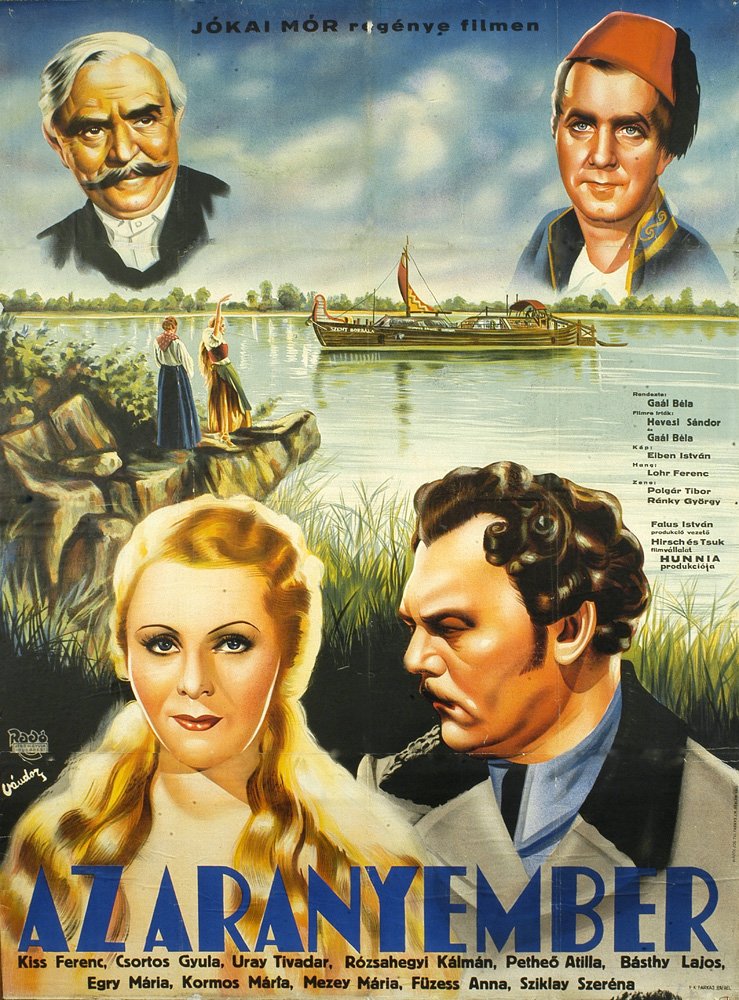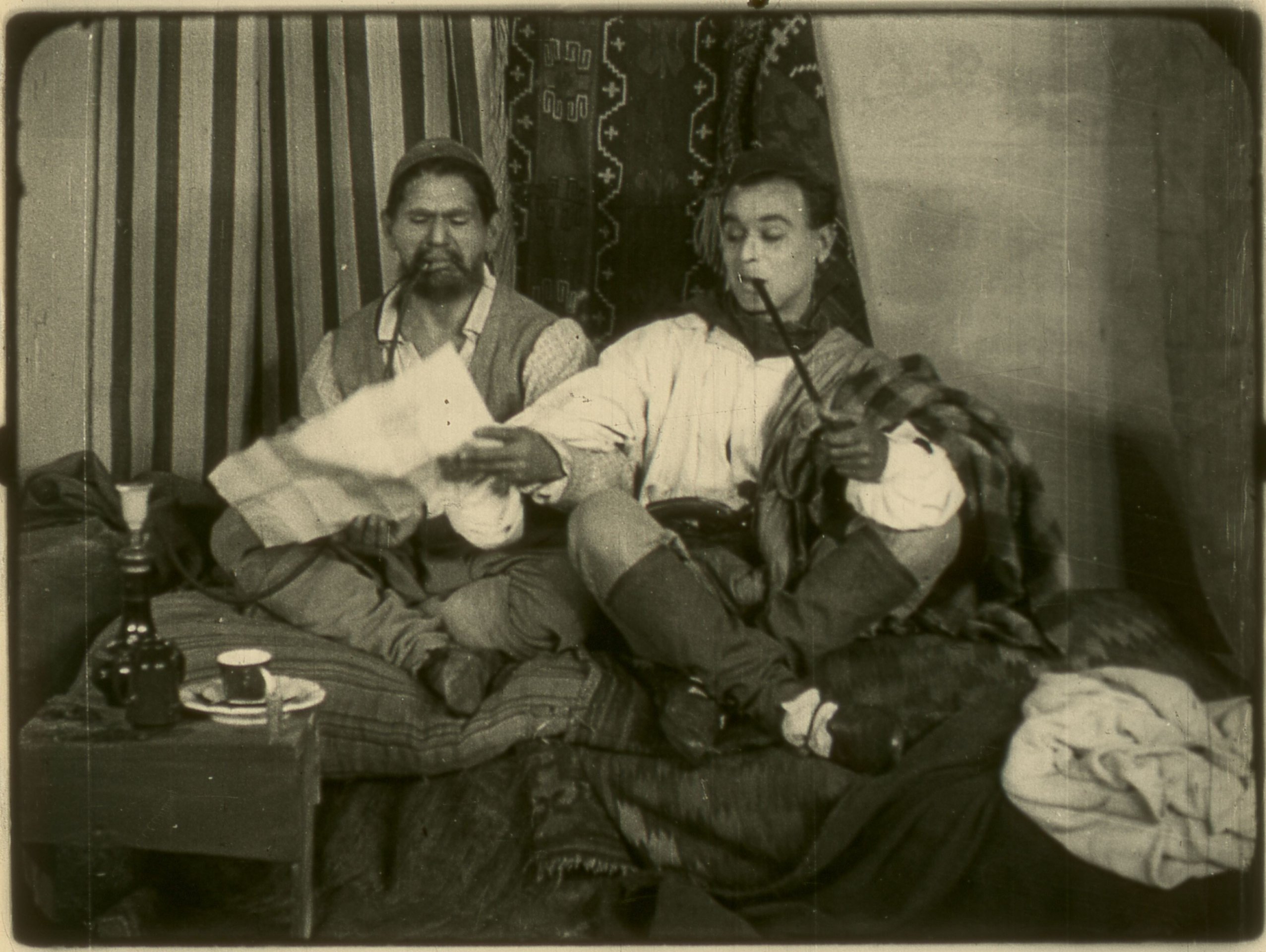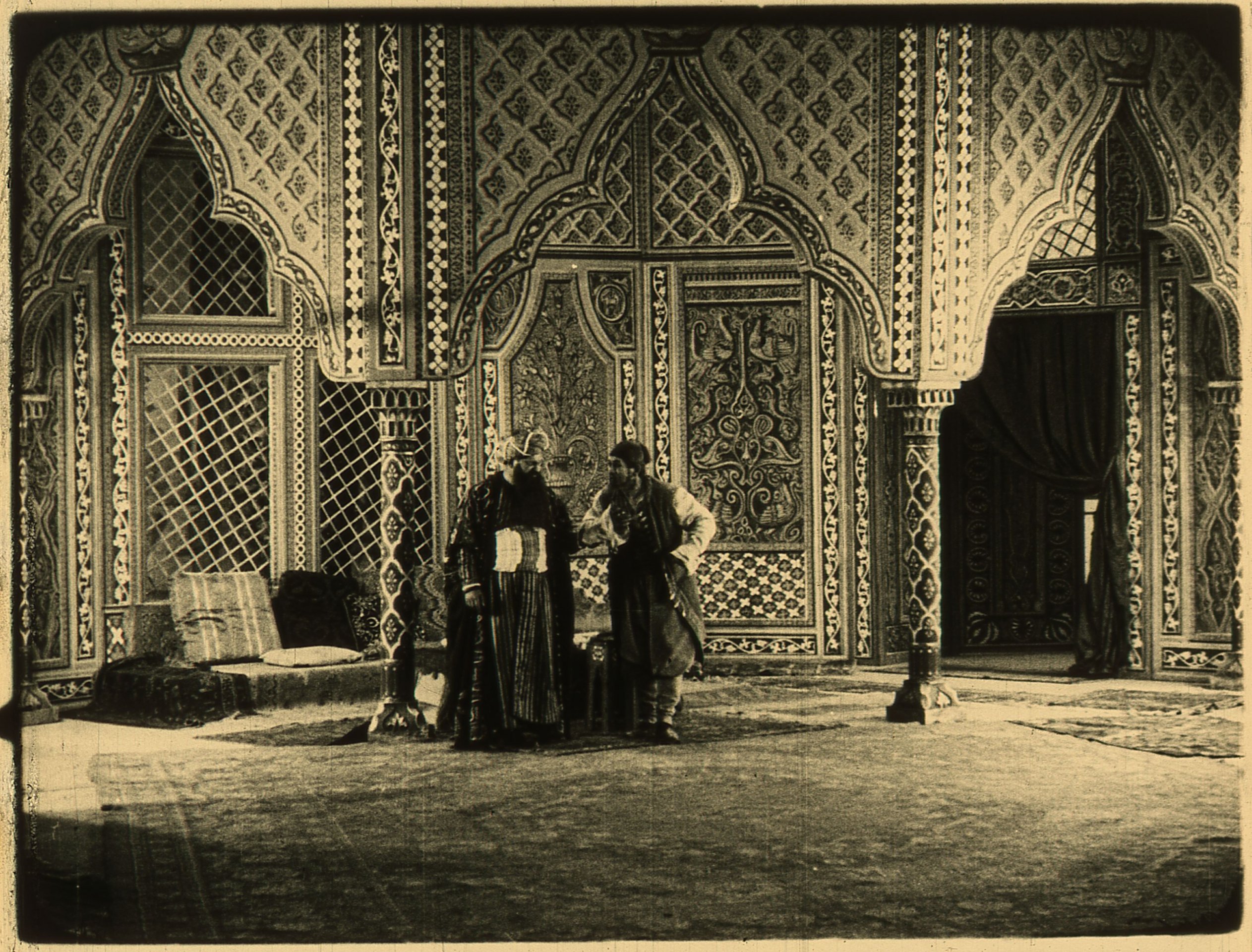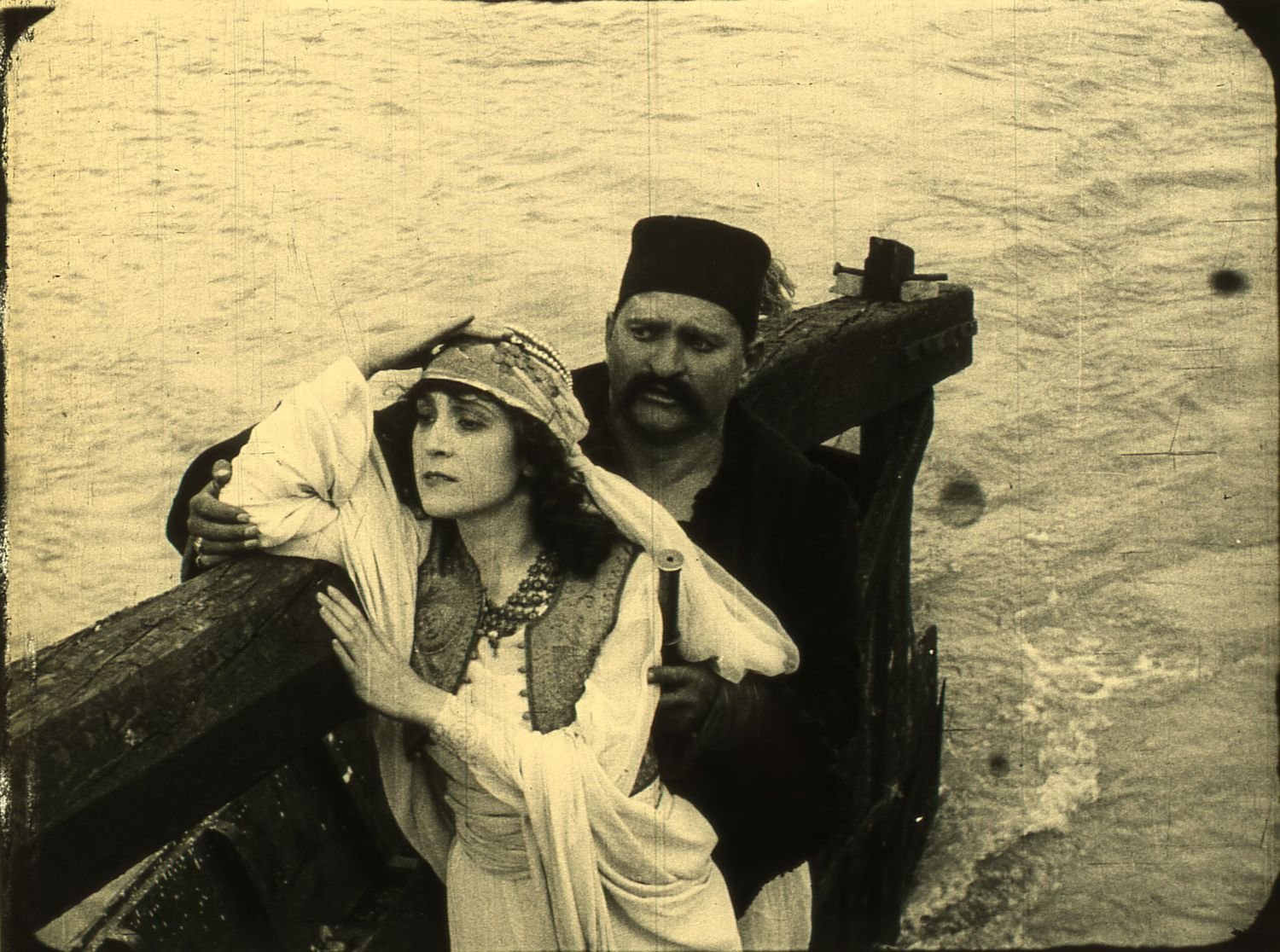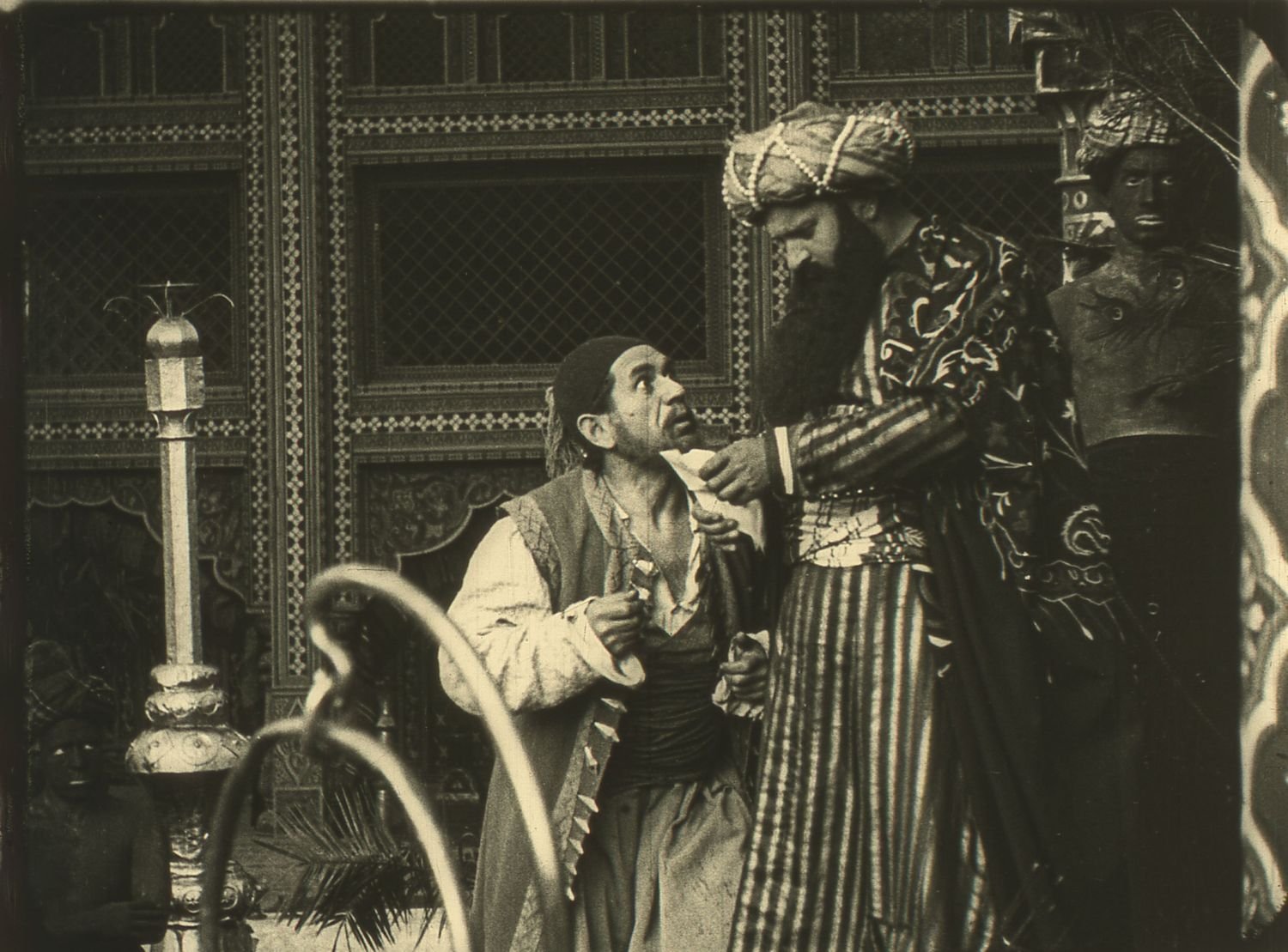
MAN OF GOLD
Man of Gold
(Az Aranyember) (Corvin Film, Hungary, 1918)
dir.: Sándor Korda (Alexander Korda); script: László Vajda (Ladislaus Vajda) based on the novel Az arany ember by Mór Jókai; photog.: Gusztáv Kovács
cast: Oszkár Beregi (Tímár Mihály), Lili Berky (Athalia), Margit Makay (Timea), Ica von Lenkeffy (Noémi), Gábor Rajnay (Krisztyán Tódor), Gyula Szöreghy (Ali Csorbadzsi), Szeréna S. Fáy (Teréza), Jenő Horváth (Brazovicz Atanáz)
DCP, 86’; tinted; intertitles: HU, subtitles: PL, EN; restored 2018; source: Nemzeti Filmintézet – Filmarchívum
The Ottoman Empire in the second half of the nineteenth century – Pasha Csorbadzsi, having been warned about his upcoming arrest, escapes with his daughter Timea, taking his most valuable possessions with him. They try to get to Hungary aboard a ship commanded by Captain Tímár. Following a series of dramatic events, the pasha dies, and the captain, who is in love with beautiful Timea, acquires his fortune. Soon, however, it turns out that Tímár’s heart will be stolen by Noémi, who is living alone on an island...
This classic of Hungarian silent cinema is a sophisticated and accomplished adaptation of a novel by Mór Jókai, the esteemed romantic novelist, and one of Alexander Korda’s most important early works.
A pioneer of Hungarian cinema, and also a future innovator in British cinema, Korda began his career as one of the country’s first film critics, going on to found a number of industry magazines before becoming a director’s assistant. Crucial to his success was meeting Jenő Janovics, a key figure in the Hungarian film industry, who first let the 23-year-old Korda direct two films in 1916, and then entrusted him with running the Corvin Film studio, which at the time was the largest studio in Hungary. Man of Gold was a landmark production for this film company as it achieved Korda’s main goal of ennobling cinema through the inspiration of great literature. That aim led to the involvement of playwright Lászlo Vajda as the studio’s main screenwriter, with the adaptation of Hungarian classics becoming a priority.
Made at the end of World War I, this film adaptation of Jókai’s most popular novel was a prestigious, carefully prepared production, with original locations on the Danube, reflecting – thanks to the beautifully composed shots – the atmosphere of a bygone era. Although it has survived only in part, this film, together with fragments of two other films from this period, is all that remains of the movies Korda shot in Hungary before he left the country in 1919. (KW)
The restoration of Man of Gold was carried out by the Hungarian National Film Institute – Film Archive, in collaboration with director of photography Gábor Medvigy, from the only surviving material of the film, a German 35 mm nitrate positive found in the Bundesarchiv.
introduction to the movie: Michał Pieńkowski
section: FOUR SIDES OF THE WORLD
music by: Waldemar Rychły Trio
FRIDAY | OCTOBER 29
18:00 | screening room: STOLICA

